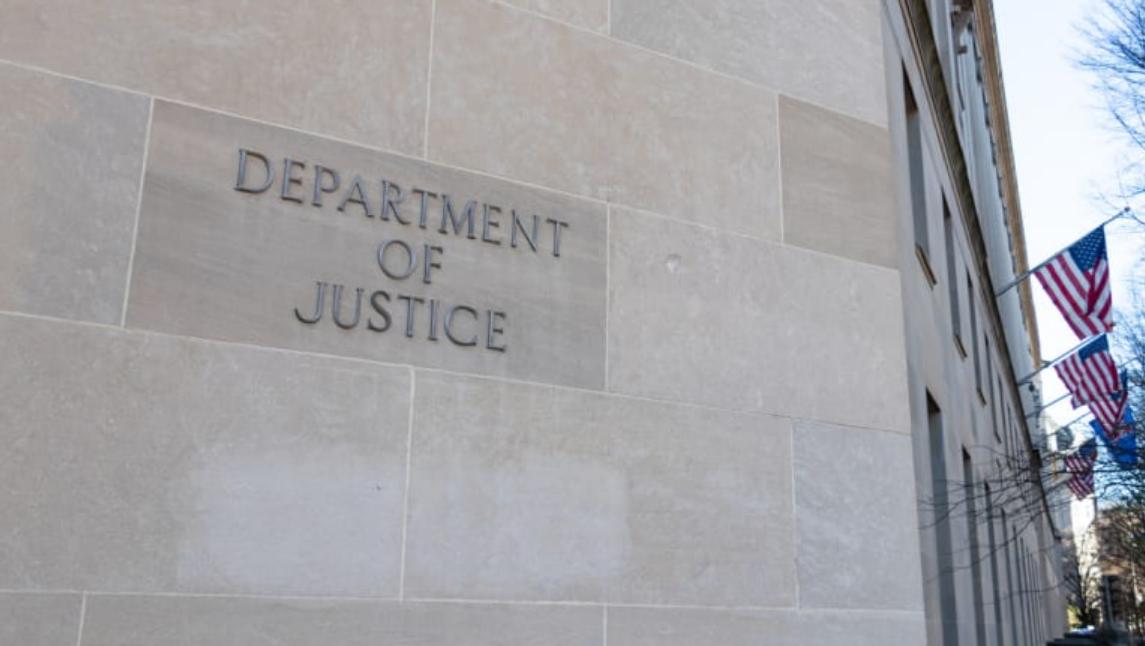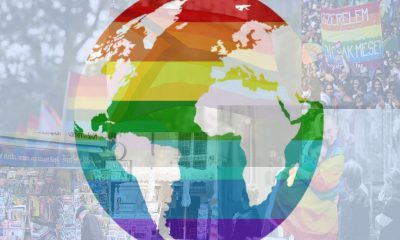News
Malta same-sex marriage bill receives final approval
Prime Minister Joseph Muscat is among measure’s supporters


A bill that would extend marriage rights to same-sex couples in Malta received final approval on July 12, 2017. (Photo public domain)
Lawmakers approved the Marriage Equality Bill by a 66-1 vote margin. The vote took place a week after the Maltese Parliament nearly unanimously approved the Marriage Equality Bill.
Prime Minister Joseph Muscat, who was re-elected last month, is among those who support the measure.
“Marriage equality is now reality in Malta,” said Muscat on his Twitter page shortly after the bill passed. “Pledge fulfilled. Future sealed.”
#MarriageEquality is now reality in #Malta. Pledge fulfilled, future sealed -JM #EqualMarriage #ZwiegIndaqs
— Joseph Muscat (@JosephMuscat_JM) July 12, 2017
The Malta Gay Rights Movement on its Twitter page noted Wednesday’s vote caps off efforts to extend marriage rights to same-sex couples that began 16 years ago. ILGA-Europe Executive Director Evelyne Paradis in a statement applauded local advocates and the Maltese government.
“This step is the icing on the cake of the tremendous work by the Maltese LGBTI movement,” she said. “We congratulate the Maltese government for sticking to its commitments. We applaud everyone who has been working on this. To see equal marriage supported by practically the entire parliament is amazing.”
The Malta Independent, a newspaper in the small archipelago that is located in the Mediterranean Sea between Sicily and the North African coast, reported roughly 150 people gathered outside the Maltese Parliament on Tuesday to protest the bill. The Roman Catholic Church also opposed the measure.
German lawmakers approved a same-sex marriage bill on June 30.
Gays and lesbians can legally marry in Iceland, the Faroe Islands, Ireland, Scotland, England, Wales, the Isle of Man, Guernsey, France, Spain, Portugal, Gibraltar, the Netherlands, Belgium, Luxembourg, Denmark, Norway, Sweden and Finland.
A law that allows trans Maltese to, among other things, legally change their name or gender without undergoing a sex-reassignment surgery or hormone therapy and provides legal protections to intersex children took effect in 2015. Malta last December became the first country in Europe to ban so-called conversion therapy.
The marriage bill is expected to take effect later this month.
News
West Hollywood to advance protections for diverse and non-nuclear families
West Hollywood is working to update local ordinances to include non-nuclear, polyamorous, and chosen families.

West Hollywood is once again at the forefront of LGBTQ+ equality and family inclusivity. The city, known for its progressive leadership, is working to update local ordinances to better reflect the full spectrum of modern family structures, including non-nuclear, polyamorous, and chosen families.
Christina Fialho, an attorney and founder of Rewrite the BiLine, has been a driving force behind the effort. Fialho has spent nearly two decades advocating for LGBTQ+ and immigrant rights. For her, this fight is deeply personal. “West Hollywood is my community, where I go to the gym, where I go out with friends, and as a bi queer person, I am grateful each day to be part of such a welcoming community,” Fialho shared.
“For polyamorous individuals and people in diverse family structures,” Fialho said, “the fear of discrimination and lack of legal protections make coming out incredibly difficult. That’s why I have mobilized community support by meeting one-on-one with community members to listen, connect, and build trust. Despite the fear, there’s a powerful, shared desire for change, and it’s that collective courage that has made this work possible so far.”
The push gained momentum after the passage of Proposition 3 in California last year, which removed discriminatory language from the state constitution and reaffirmed same-sex marriage protections. Fialho reached out to West Hollywood Mayor Chelsea Lee Byers in March 2025 to explore how the city could further protect diverse families. Within two months, Mayor Byers introduced an agenda item to initiate the process of expanding the city’s nondiscrimination protections.
“For so many queer individuals, chosen family is a source of safety, stability, and joy,” Mayor Byers shared. “As a city that has long championed LGBTQ+ rights, it’s essential that we enact the legal protections necessary for all families to live in dignity and security. This nondiscrimination ordinance and the domestic partnership law will enhance the well-being of people and families across West Hollywood, and I’m proud that our city continues to lead with our values of inclusion, diversity, and equality for all.”

On May 19, 2025, the West Hollywood City Council unanimously voted to explore updates to the municipal code that would prohibit discrimination based on family and relationship structure. These updates would explicitly protect people in polyamorous relationships, multi-parent families, step-families, multi-generational households, and asexual partnerships. These types of ordinances, which have been adopted by a few other cities, “are already reducing stigma and advancing equity in real and measurable ways,” Fialho wrote in her May 19th comment letter.
On June 23, the City Council took another historic step. Vice Mayor John Heilman introduced an agenda item to explore updating the city’s domestic partnership ordinance to allow more than two people to register as domestic partners, potentially making West Hollywood the first city in California to officially recognize multi-partner relationships. When introducing the agenda item, Heilman explained that he wants to address the needs of people in diverse family structures “and provide whatever protection we can for them as a family and for their children.” Heilman also led the city’s groundbreaking effort in 1985 to create the nation’s first domestic partnership registry for same-sex couples.
This growing movement has been powered by the voices of West Hollywood residents, local leaders, and LGBTQ+ advocates who have rallied in support of the ordinance. Many emphasized that recognizing diverse family structures is not just a policy update, it’s a necessary step toward dignity and equity for all.
Brian Wenke, who runs a global LGBTQ+ nonprofit, stressed the urgency of modernizing family protections, sharing that “our laws must evolve to reflect the full spectrum of how love and family show up in the world.” Nicole Kristal, founder of Still Bisexual, highlighted the specific impact on bi+ people, many of whom are left “without the protections, benefits, or dignity afforded to others.” For Kristal, this is about more than just policy; it’s about finally “addressing the needs of people who have been historically sidelined even within queer spaces.” Educator and advocate Ross Victory also underscored the importance of protecting chosen families, especially now, saying, “family, chosen or blood, is more important than ever in these times.”
As a polyamorous, trans woman and West Hollywood community member, I also spoke in support of the ordinance. For me, this is personal. “Domestic partnership recognition isn’t just symbolic; it’s a step toward legal inclusion, protection, and dignity,” I shared. In a time of growing backlash against LGBTQ+ rights, I believe that “taking bold action to support marginalized communities isn’t just the right thing to do, it’s the necessary thing to do.”
This local movement is part of a growing national effort to redefine what family means under the law. Across the country, more than a dozen states have expanded paid family leave to include chosen family and “designated persons,” and California now allows caregiving beyond the traditional nuclear family. If this ordinance passes, West Hollywood will become the first city in California and the first on the West Coast to officially recognize domestic partnerships that include triads, polycules, and other multi-partner relationships, joining municipalities like Somerville, Cambridge, and Arlington, Massachusetts.
“What we do here in West Hollywood has a direct effect on the state and national conversation,” Fialho emphasized. “While West Hollywood cannot end discrimination against queer families on its own, it can lead the way.” Fialho hopes this progress will inspire other cities across Los Angeles County and beyond to follow. “The binary lens through which society views gender, sexuality, and relationships denies the reality of millions. Poly families disproportionately include bi+, trans, and nonbinary individuals, communities that already experience discrimination and legal invisibility. Unequal access to rights and benefits was a primary catalyst for the marriage equality movement, and it should motivate Californians to extend benefits to all families.”
The City Attorney has now been directed to evaluate amending local ordinance language, and the next vote is expected soon. Community members can stay engaged and show support by joining the local coalition here. All eyes will be on West Hollywood as it continues to push the boundaries of family recognition in an upcoming City Council meeting.
Breaking News
Trump administration sues California over trans student-athletes
Lawsuit claims state policy violates federal law on school sports

President Donald Trump is making good on his threat to punish California officials for allowing transgender female student-athletes to compete with cisgender girls in school sports.
On Wednesday, the U.S. Department of Justice announced it is suing the state’s Department of Education, claiming California’s policy to allow trans students to compete with other girls violates Title IX, the federal law that bans discrimination in education based on sex. The DOJ’s suit says California’s rules “are not only illegal and unfair but also demeaning, signaling to girls that their opportunities and achievements are secondary to accommodating boys.”
As the Washington Blade reported in June, this lawsuit follows a warning by the Trump administration to end the trans participation policy within 10 days or face referral to the DOJ as well as the loss of federal education funding.
And California may merely be the first to face legal action, according to U.S. Attorney General Pam Bondi, who warned that the 21 other states which permit trans girls to compete in female athletics could also face challenges by the federal government.
“If you do not comply, you’re next,” she said in a video posted on the DOJ website. “We will protect girls in girls sports.” Bondi was joined by Secretary of Education Linda McMahon.
The DOJ suit named California’s Education Department and the California Interscholastic Federation, the governing body for high school sports. A spokesperson for the CIF told the Associated Press the organization would not comment on pending litigation.
A spokesperson for Democratic Gov. Gavin Newsom deferred to the CIF and the Department of Education in declining to comment on the lawsuit since the governor was not named a defendant. But Newsom’s office told the AP that the Trump administration’s attacks on its policies protecting transgender athletes are “a cynical attempt” to distract from the federal government’s withholding of funds for all students who benefit from after-school and summer programs.
Newsom, however, has come under criticism — most notably by the Human Rights Campaign — for remarks he made in March, that allowing transgender athletes to compete in women’s sports was “deeply unfair,” as the Blade reported.
For more than a decade, California law has allowed students to participate in sex-segregated school programs, including on sports teams, and use bathrooms and other facilities that align with their gender identity.
But headlines about AB Hernandez, an out trans female high school student-athlete who won titles in the California track-and-field championships last month, drew condemnations from Assistant U.S. Attorney General Harmeet Dhillon, and President Trump himself.
Following the meet, Dhillon wrote in a letter to the California Interscholastic Federation that it violated the Equal Protection Clause of the Constitution by allowing trans girls to compete against other female athletes.
As for the lawsuit, DOJ claims California’s policies “ignore undeniable biological differences between boys and girls, in favor of an amorphous ’gender identity.’”
“The results of these illegal policies are stark: girls are displaced from podiums, denied awards, and miss out on critical visibility for college scholarships and recognition,” the suit says.
Last week, the U.S. Supreme Court agreed to hear two cases challenging state bans on trans student-athletes, as the Blade reported. More than 20 states have limited trans girls from participating on girls sports teams, barred gender-affirming surgeries for minors and required parents to be notified if a child changes their pronouns at school. More than two dozen states have laws barring trans women and girls from participating in certain sports competitions. Challenges to some of those policies are still being decided by courts across the country.
Back in February, the president signed an executive order that bans trans girls and women from participating in sports that match their gender identity, as the Blade reported.
Supporters of banning trans girls and women from competing include the conservative California Family Council, which has posted a petition online, arguing a ban would restore fairness in athletic competitions. Opponents like Equality California say bans are an attack on transgender youth.
“Local schools and athletic associations are the ones who should be handling these issues, and they are already creating policies that protect transgender youth and ensure a level playing field for all students. A federal ban that overrides those rules could require young girls to answer inappropriate personal questions or even be subjected to genital inspections by strangers if they want to participate in sports,” the organization said in a statement in February.
“The head of the NCAA, himself a former Republican Governor, recently told a U.S. Senate panel that he knew of less than 10 out transgender athletes among the 510,000 currently competing in college sports—less than .002 percent of all NCAA athletes.
“Studies confirm that participation in sports provides kids with invaluable life skills such as teamwork, leadership, discipline, and cooperation—fundamental lessons that every young person deserves the chance to experience. Beyond the field, sports also contribute significantly to students’ overall well-being, fostering better mental health, boosting academic performance, and enhancing self-esteem and confidence.”
Obituary
The queer community mourns the loss of trailblazer Jewel Thais-Williams
Founder of Catch One, Thais-Williams became the first Black woman to own an LGBTQ club in the nation.

Jewel’s Catch One nightclub, affectionately referred to by locals as “The Catch,” has been a vital part of the queer and Black communities since its opening in 1973. It was one of the first Black discos in the US, and the first major Black queer bar in Los Angeles. At its helm was pioneer Jewel Thais-Williams, the first Black woman to own an LGBTQ club in the nation. Jewel passed away on July 7th, as confirmed by her sister Carol Williams; she was 86 years old.
Thais-Williams was born in Gary, Indiana, and was brought to San Diego after her family members were drafted into the Navy and stationed in San Diego. After high school, she attended UCLA. Seeing the limited possibilities available to Black women, she believed the only way to acquire wealth was to open her own business, and she started a dress shop with her sister.
She came into her sexuality in her mid-twenties and identified as a lesbian. She experienced firsthand the discrimination towards Black folk at gay clubs and purchased the Diana Club in the Arlington Heights district. She renamed it Jewel’s Catch One, and made history. At the time, women couldn’t tend bar unless they owned it.
After proving herself to the nightclub community, Catch One became a thriving safe space for the queer and Black communities. It also became a go-to spot for celebrity performers, with Janet Jackson, Donna Summer, Whitney Houston, Rick James, Madonna, and more.
Thais-Williams wasn’t just a bar owner; she was an activist. During the AIDS epidemic, she made Catch One available for community meetings. She also served on the board of the AIDS Project LA, co-founded the Minority AIDS Project, and co-founded Rue’s House, providing a safe space for women with AIDS and their children.
During her reign at Catch One, she went back to school and got a Master of Science degree in Oriental Medicine from Samra University. This inspired her to open the Village Health Foundation, a non-profit with a mission to educate lower-income communities on nutrition and healthy living.
Thais-Williams served as the Grand Marshal for the 2016 Los Angeles Pride Festival. In 2019, the intersection directly in front of Catch One was renamed as Jewel Thais-Williams Square. There have been two documentaries paying homage to Thais-Williams and her club, Jewel and the Catch, and Jewel’s Catch One. Footage from Jewel and the Catch was used in the opening sequence of season 3 of Amazon’s Transparent.
This last weekend, Los Angeles Blade was present at Catch One as it served as host to some of the tentpole events of Los Angeles Blade Pride. Executive Director Brandon Anthony shared this statement with the Blade:
With the devastating news of the passing of Jewel Thais-Williams, we honor a true icon and pioneer whose legacy shaped the soul of Los Angeles. For over 40+ years, she stood as a beacon for the LGBTQ community. CATCH ONE offered refuge during the AIDS epidemic, creating safe spaces when none existed, and championed Los Angeles Black Pride with unwavering love, support, and commitment. Her light made room for all of us to shine, and her legacy will forever live on through the mission of LA Black Pride.
California State Assembly member Rick Chavez Zbur also shared this statement:
I’m deeply saddened by the passing of Jewel Thais-Williams—an icon, a trailblazer, and a matriarch of Los Angeles’ Black LGBTQ+ community. Through Jewel’s Catch One, she created a haven of joy and resistance, and through her advocacy, she brought healing to communities devastated by HIV/AIDS. While leading EQCA, I was honored to present her with our Community Leadership Award in 2018. Her legacy lives on in every life she touched. She will be missed.
Catch One’s Instagram posted:
A celebration of her life at Catch One is anticipated; details to follow.
El Salvador
La marcha LGBTQ+ desafía el silencio en El Salvador
Se realizó el evento en San Salvador bajo la lluvia, pero con orgullo

SAN SALVADOR, El Salvador — El reloj marcaba el mediodía cuando los primeros colores del arcoíris comenzaron a ondear frente a la emblemática Plaza del Divino Salvador del Mundo. A pesar de la incertidumbre generada en redes sociales, donde abundaban los rumores sobre una posible cancelación de la marcha por la diversidad sexual, la ciudad capital comenzaba a llenarse de esperanza, de resistencia y de orgullo.
Este año, la Marcha del Orgullo LGBTQ+ en El Salvador se desarrolló en un contexto tenso, en medio de un clima político que reprime y silencia a las voces disidentes.
“Aunque las estadísticas digan que no existimos, viviendo en El Salvador, un país donde hoy, después de décadas de avances, defender los derechos humanos es de nuevo una causa perseguida, criminalizada y silenciada”, afirmaron representantes de la Federación Salvadoreña LGBTQ+.
A pesar de la cancelación del festival cultural que usualmente acompaña la marcha, los colectivos decidieron seguir adelante con la movilización, priorizando el sentido original de la actividad: salir a las calles para visibilizarse, exigir respeto a sus derechos y recordar a quienes ya no están.
A la 1:30 p.m., una fuerte lluvia comenzó a caer sobre la ciudad. Algunas de las personas presentes corrieron a refugiarse, mientras otras, debajo de sombrillas y de los escasos árboles en la plaza, decidieron mantenerse firmes. Los comentarios pesimistas no se hicieron esperar: “a lo mejor la cancelan por el clima”, “no se ve tanta gente como otros años”. Sin embargo, lo que siguió fue una muestra de resistencia: a las 2:05 p.m. las voces comenzaron a llamar a tomar las calles.
Visibilidad como resistencia
La marcha arrancó bajo una llovizna persistente. La Avenida Roosevelt y la Alameda Juan Pablo II se tiñeron de colores con banderas arcoíris, trans, lésbicas, bisexuales y otras que representan a los diversos sectores de la población LGBTQ+. Cada bandera alzada fue un acto político, cada paso una declaración de existencia.
Desde la Plaza del Divino Salvador del Mundo hasta la Plaza Gerardo Barrios, frente a Catedral Metropolitana y el Palacio Nacional, la marcha se convirtió en un carnaval de dignidad. Carteles con frases como “El amor no se reprime”, “Mi existencia no es delito” o “Marcho por quien ya no puede hacerlo” se alzaron entre las multitudes.
La movilización fue también un espacio para recordar a quienes han perdido la vida por la discriminación y el rechazo. Familias que marcharon por hijos, hijas o amigues que se suicidaron a causa del estigma. Personas que caminaron por quienes aún viven en el miedo, por quienes no pudieron salir del clóset, por quienes se han ido del país huyendo de la violencia.
Arte, fe y rebeldía
Una de las escenas más llamativas fue protagonizada por Nelson Valle, un joven gay que marchó vestido como sacerdote.
“Hay muchas personas que secretamente asisten a ritos religiosos como en Semana Santa, y les gusta vivir en lo oculto. Pero la fe debe ser algo libre porque Dios es amor y es para todos”, dijo.
Valle utilizó su vestimenta como una forma de protesta contra las estructuras religiosas que aún condenan la diversidad sexual.
“Un ejemplo de persona que abrió el diálogo del respeto fue el papa Francisco, abrió la mente y muy adelantado a su tiempo, porque dejó claro que hay que escuchar a toda persona que quiere encontrar a Dios”, agregó.
La marcha también incluyó bandas musicales, grupos de cachiporristas, carrozas artísticas, colectivos provenientes de distintos puntos del país, y manifestaciones de orgullo en todas sus formas. Fue un mosaico cultural que mostró la riqueza y diversidad de la población LGBTQ+ en El Salvador.

Una lucha que persiste
Las organizaciones presentes coincidieron en su mensaje: la lucha por la igualdad y el reconocimiento no se detiene, a pesar de los intentos del Estado por invisibilizarlos.
“Nuestros cuerpos se niegan a ser borrados y a morir en la invisibilidad de registros que no guardan nuestros nombres ni nuestros géneros”, declararon representantes de la Federación.
Además, agregaron: “Desde este país que nos quiere callar, levantamos nuestras voces: ¡La comunidad LGBTIQ+ no se borra! ¡El Salvador también es nuestro! Construyamos, entre todes, un país donde podamos vivir con Orgullo.”
El ambiente fue de respeto, pero también de desconfianza. La presencia de agentes policiales no pasó desapercibida. Aunque no hubo reportes oficiales de violencia, varias personas expresaron su temor por posibles represalias.
“Marchar hoy es también un acto de valentía”, comentó Alejandra, una joven lesbiana que viajó desde Santa Ana para participar. “Pero tenemos derecho a vivir, a amar, a soñar. Y si nos detenemos, les damos la razón a quienes nos quieren ver en silencio.”
Rumbo al futuro
Concluida la marcha frente a Catedral y el Palacio Nacional, muchas personas permanecieron en la plaza compartiendo abrazos, fotos y palabras de aliento. No hubo festival, no hubo escenario, pero hubo algo más valioso: una comunidad que sigue viva, que sigue resistiendo.
Los retos son muchos: falta de leyes de protección y que apoye las identidades de las personas trans, discriminación laboral, violencia por prejuicio, rechazo familiar, y una narrativa estatal que pretende que no existen. Pero la marcha del 28 de junio demostró que, aunque el camino sea cuesta arriba, la dignidad y el orgullo no se borran.
La lucha por un El Salvador más justo, más plural y más inclusivo continúa. En palabras de uno de los carteles más llamativos de ese día: “No estamos aquí para pedir permiso, estamos aquí para recordar que también somos parte de este país”.
Congress
White House finds Calif. violated Title IX by allowing trans athletes in school sports
Education Department threatens ‘imminent enforcement action’

The Trump-Vance administration announced on Wednesday that California’s Interscholastic Federation and Department of Education violated federal Title IX rules for allowing transgender girls to compete in school sports.
In a press release, the U.S. Department of Education’s Office of Civil Rights threatened “imminent enforcement action” including “referral to the U.S. Department of Justice” and the withholding of federal education funding for the state if the parties do not “agree to change these unlawful practices within 10 days.”
The agency specified that to come into compliance; California must enforce a ban excluding transgender student athletes and reclaim any titles, records, and awards they had won.
Federal investigations of the California Interscholastic Federation and the state’s Department of Education were begun in February and April, respectively. The Justice Department sued Maine in April for allowing trans athletes to compete and refusing a similar proposal to certify compliance within 10 days.
Broadly, the Trump-Vance administration’s position is that girls who are made to compete against trans opponents or alongside trans teammates are unfairly disadvantaged, robbed of opportunities like athletics scholarships, and faced with increased risk of injury — constituting actionable claims of unlawful sex discrimination under Title IX.
This marks a major departure from how the previous administration enforced the law. For example, the Department of Education issued new Title IX guidelines in April 2024 that instructed schools and educational institutions covered by the statute to not enforce categorical bans against trans athletes, instead allowing for limited restrictions on eligibility if necessary to ensure fairness or safety at the high school or college level.
Sports aside, under former President Joe Biden the department’s Office of Civil Rights sought to protect against anti-LGBTQ+ discrimination in education, bringing investigations and enforcement actions in cases where school officials might, for example, require trans students to use restrooms and facilities consistent with their birth sex or fail to respond to peer harassment over their gender identity.
Much of the legal reasoning behind the Biden-Harris administration’s positions extended from the 2020 U.S. Supreme Court case Bostock v. Clayton County, which found that sex-based discrimination includes that which is based on sexual orientation or gender identity under Title VII rules covering employment practices.
A number of high profile Democrats, including California Gov. Gavin Newsom, have recently questioned or challenged the party’s position on transgender athletes, as noted in a statement by Education Secretary Linda McMahon included in Wednesday’s announcement.
“Although Gov. Gavin Newsom admitted months ago it was ‘deeply unfair’ to allow men to compete in women’s sports, both the California Department of Education and the California Interscholastic Federation continued as recently as a few weeks ago to allow men to steal female athletes’ well-deserved accolades and to subject them to the indignity of unfair and unsafe competitions.”
News
Drama unfolds for San Diego Pride ahead of festivities
A letter sent to the current Board of Directors earlier this month outlines serious issues like lack of transparency, erosion of SD Pride’s advocacy work and weakening of staff

Over two dozen community leaders, program leaders, current and former volunteers, board members and staff have issued an urgent open letter to San Diego Pride’s board of directors, calling for accountability and transparency from higher leadership, citing patterns of alleged systemic dysfunction.
The letter was sent earlier this month, outlines serious issues, including lack of transparency, erosion of SD Pride’s advocacy work and weakening of staff. Those who have signed the letter are calling for immediate governance reforms, transparent leadership selection processes and an independent audit of the organization’s internal culture.
The letter states: “The current condition of Pride reflects not just instability but a profound crisis in leadership, direction and community trust. The Board’s inaction, lack of transparency and repeated failures of accountability have left the organization weakened, its values compromised and the broader community confused, disappointed and alarmed.”
With three weeks left until the planned festivities, the letter signed by 30 community-based individuals states that the organization is a “hollowed-out” version of what it once was. The letter also states that the identity of the organization has been “blurred”, the staff has been “depleted” and where the “historic commitment to year-round advocacy, inclusion and leadership development” have been abandoned.
The letter highlights the following eight key grievances
- Resignation of fifth Executive Director in under two years
- Unexplained and unannounced departure of senior staff within the past 18 months, including the Director of Education and Advocacy, leaving no plan to sustain or rebuild critical education programs
- Erasing Pride Staff and Board directory from their public website
- The cancellation of She Fest and LGBTQIA+ Survivor Task Force “due to deep misalignment with the current leadership’s values and actions”
- Decline of full-time staff from over 30 full-time employees, to fewer than ten
- Lack of response, dismissiveness, retaliatory behavior and hostility from board members when volunteers, leaders, staff and others bring up concerns
- Non-responsiveness to media inquiries
- Repeated stonewalling
San Diego Pride is also facing other issues with outside sponsors due to the lack of leadership and decision-making within the organization.
Other news outlets have reported that San Diego Pride has lost major sponsors over headlining artist Kehlani and her outspoken support of Palestinians. Harrah’s Resort Southern California, a major financial supporter of the SD Pride Parade, pulled its sponsorship from the upcoming festival, which takes tens of thousands of dollars away from the festivities. Other groups such as University of California, San Diego; and University of California San Diego Health have also withdrawn sponsorship.
A coalition of Jewish organizations decided to boycott the festival and parade, citing safety concerns related to the comments made by Kehlani, citing the music video critics suggest makes a reference to violence against Jewish people.
San Diego Pride issued a statement regarding the sponsors decision to pull support, stating that it “does not endorse or adopt the political positions of any individual performer” and that they honor “the value of artistic integrity, the importance of free expression and the role that artists play in shaping culture, challenging systems and amplifying voices while respecting each other’s differences.”
Kehlani responded to the accusations by stating that they are“not anti-semetic, nor anti-Jew” they are “anti-genocide…anti-extermination of an entire people… anti-bombing of innocent children, men, women,” in a social media video.
Colombia
Colombia avanza hacia la igualdad para personas trans
Fue aprobado en Comisión Primera de la Cámara la Ley Integral Trans

En un hecho histórico para los derechos humanos en Colombia, la Comisión Primera de la Cámara de Representantes aprobó en primer debate el Proyecto de Ley 122 de 2024, conocido como la Ley Integral Trans, que busca garantizar la igualdad efectiva de las personas con identidades de género diversas en el país. Esta iniciativa, impulsada por más de cien organizaciones sociales defensoras de los derechos LGBTQ+, congresistas de la comisión por la Diversidad y personas trans, representa un paso decisivo hacia el reconocimiento pleno de derechos para esta población históricamente marginada.
La Ley Integral Trans propone un marco normativo robusto para enfrentar la discriminación y promover la inclusión. Entre sus principales ejes se destacan el acceso a servicios de salud con enfoque diferencial, el reconocimiento de la identidad de género en todos los ámbitos de la vida, la creación de programas de empleo y educación para personas trans, así como medidas para garantizar el acceso a la justicia y la protección frente a violencias basadas en prejuicios.
Detractores hablan de ‘imposición ideológica
Sin embargo, el avance del proyecto no ha estado exento de polémicas. Algunos sectores conservadores han señalado que la iniciativa representa una “imposición ideológica”. La senadora y precandidata presidencial María Fernanda Cabal anunció públicamente que se opondrá al proyecto de Ley Integral Trans cuando llegue al Senado, argumentando que “todas las personas deben ser tratadas por igual” y que esta propuesta vulneraría un principio constitucional. Estas declaraciones anticipan un debate intenso en las próximas etapas legislativas.
El proyecto también establecelineamientos claros para que las instituciones públicas respeten el nombre y el género con los que las personas trans se identifican, en concordancia con su identidad de género, y contempla procesos de formación y sensibilización en entidades estatales. Además, impulsa políticas públicas en contextos clave como el trabajo, la educación, la cultura y el deporte, promoviendo una vida libre de discriminación y con garantías plenas de participación.
¿Qué sigue para que sea ley?
La Ley aún debe superar varios debates legislativos, incluyendo la plenaria en la Cámara y luego el paso al Senado; pero la sola aprobación en Comisión Primera ya constituye un hito en la lucha por la igualdad y la dignidad de las personas trans en Colombia. En un país donde esta población enfrenta altos niveles de exclusión, violencia y barreras estructurales, este avance legislativo renueva la esperanza de una transformación real.
Desde www.orgullolgbt.co, celebramos este logro, invitamos a unirnos en esta causa impulsándola en los círculos a los que tengamos acceso y reiteramos nuestro compromiso con la visibilidad, los derechos y la vida digna de las personas trans. La #LeyIntegralTrans bautizada “Ley Sara Millerey” en honor de la mujer trans recientemente asesinada en Bello, Antioquia (ver más aquí); no es solo una propuesta normativa: es un acto de justicia que busca asegurar condiciones reales para que todas las personas puedan vivir con libertad, seguridad y respeto por su identidad.
Health
APLA opens eighth location in LA County
The WeHo location is named after Dr. Michael Gottlieb, the groundbreaking physician and researcher who in 1981 co-authored the first medical report identifying AIDS

The Michael Gottlieb Health Center is latest APLA facility to open, making it the eighth location in L.A. County to offer accessible healthcare services.
APLA Health recently opened its brand new the Michael Gottlieb Health Center in West Hollywood with a glitzy ribbon-cutting featuring a bevy of local politicians and community leaders on Friday, June 13. The new location, APLA’ eighth facility, will help the organization provide dedicated LGBTQ-inclusive health services to its more than 22,000 patients.
The new health center boasts 10 exam rooms offering primary, HIV and sexual health care, as well as mental health services. It also includes APLA’s first pharmacy and headquarters for the Alliance for Housing and Healing.
The WeHo location is named after Dr. Michael Gottlieb, the groundbreaking physician and
researcher who in 1981 co-authored the first medical report identifying the illness that
would later become known as AIDS. He later spearheaded important research on the
progression and treatment of HIV/AIDS and co-founded the American Foundation for
AIDS Research. He spent the last four years of his career at APLA, retiring in 2023.
“I’m honored to help dedicate this health center with my name on it,” Gottlieb told a
packed audience in the new center’s waiting room. “The center is named for someone
who is not of the community, but I’m proud to have my name up there, and grateful for a
community that has confided in me and trusted in me for decades now, and I continue
to stand with you in these difficult times in all the issues you’re facing.”
All of the speakers at the opening ceremony noted the difficult political climate for queer
people, immigrants, and health care under the new Trump administration in Washington.
APLA has already been forced to lay off its PrEP Navigation Team from its
Baldwin Hills location, as the federal government has terminated all contracts on HIV
and STD prevention with providers in LA County.
West Hollywood Mayor Chelsea Byers says this moment is an opportunity for the
community to come together to build a strong response.
“We have this opportunity to understand what we are able to do as a local community
against the backdrop of an administration like you had in the 80s,” said Byers. “I wasn’t totally there that whole time. But this link between past experience and present moment is really critical. It’s heartening to see so many community leaders. It’s a really amazing moment we have as a community. At a time when care is needed to be extended to more than ever
before I’m grateful to APLA for making such a beautiful space where care can shine so
bright in our city.”
U.S. Rep. Laura Friedman (CA-30) agreed with that sentiment.
“We have seen this administration deliberately demonize members of our community.
They have demonized immigrants, minorities, our trans community members. They’ve
turned their back on the LGBT community, cruelly cutting funding for AIDS prevention
and STDs. And yet, coming into West Hollywood and this community, and into this
room, we see there’s a tremendous amount of caring and love,” said Friedman. “That is
how we change things in this country, by living those values every day.”
“At a time when the federal government is no longer a partner in anything medical, this
facility is going to provide an incredible and needed safety net for patients,” she said.
Despite these threats, APLA Health CEO Craig Thompson says the organization is
committed to serving everyone who needs care.
“The need for people for health care is going to continue regardless of what the federal
government does around funding, and we’re committed to being there to provide that
health care in all the different ways we possibly can,” he says.
One of the new ways APLA’s new facility will improve service to its patients is through
its new in-house pharmacy.
In addition to fostering closer connection between a patient’s doctor and pharmacist, APLA will offer free delivery at no charge to patients and will help consolidate prescriptions to make it easier for patients to receive and take their medicine.
“We’ve been wanting to close the loop on comprehensive care and offer a pharmacy for
our patients, that way they can get all the support withing one organization,” says Rich
Kowalski, APLA director of pharmacy.
Arts & Entertainment
King of Drag competition series hosts premiere party in West Hollywood
Tune in to see history in the making with TV’s first-ever drag king competition show, King of Drag every Sunday on RevryTV

“King of Drag” hosted its premiere at Beaches Tropicana in West Hollywood on Sunday, June 22, uniting kings from all across the land, far and near.
The TV reality show premiere brought in a packed house with guest appearances, famous drag kings in their full regalia and guests who were more than eager to see the first episode in the historic series.
The series was created by Damian Pelliccione and Christopher J. Rodriguez and hosted by Murray Hill, who bring together a significantly underrepresented group of performers from all across the United States for a competition show on more than just looks and their ability to beat their faces. This diverse group of kings represent various cultures, inspire different communities and bring their unique skills and personalities to compete against each other for the title of king.
And the 10 kings are:
Buck Wyld from Dallas, Texas
Alexander the Great from Austin, Texas
Perka $exxx from Charlotte, North Carolina
Pressure K from Atlanta, Georgia
Dick Von Dyke from Minneapolis, Minnesota
King Molasses from Washington D.C.
Charles Galin King from Los Angeles, California
Tuna Melt from Queens, New York
Henlo Bullfrog from Philadelphia, Pennsylvania
Big D from Bellingham, Washington
The prizes
Crown and scepter from Fierce! Drag Jewels
Custom suit courtesy of Sharpe Suiting
Talent Management from Queer Up Agency
Round-trip flight to Seattle to headline the Emerald City King’s Ball
One year’s worth of e.l.f cosmetics and e.l.f skin products
$10,000 in cash
Kings Court
The battle for king has to be judged by the first and foremost kings, queens and icons of all the land. The Kings Court was made up of Tenderoni, the Puerto Rican King of Charisma,;
Sasha Velour, Brooklyn drag icon, author of “The Big Reveal,” and winner of RuPaul’s Drag Race; Wang Newton, from New York City; legendary director Paul Feig and last, but not least, executive producer and judge of the GLAAD award-winning series “Drag Latina,” and queer style icon, Damian Pelliccione.
Episode One
The first episode’s theme was none other than: sports.
The first challenge was “The Weenie Challenge,” where contestants had to pose for player cards, with only five minutes to suit up in semi-used sports gear. The photoshoot was judged by Chicago-based king Tenderoni and WNBA all-star Layshia Clarendon.
The second challenge brought teams together to write and record a verse, while also coming up with the choreography for a performance. The teams assembled and got to planning — prizes all in mind.
Tuna Melt (Teo Pactong) became the first king to be eliminated from the competition in the series premiere episode. Pactong, who runs the Hause of Melt, a production brand — was voted off after a singing and dancing competition and sports photoshoot during the first episode.
Pactong has been doing drag for four years after being introduced to drag by their drag father Theydy Bedbug. Before doing drag, they held music industry positions at Youtube Music and Google.
In the episode, Pactong opens up about their identities.
Pactong says that in the process of finding their drag king persona Tuna Melt, they found Theo. In their cameo, they explain that when they came out as trans, they didn’t feel like they fit in the world of music tech anymore.
“For the longest time, I never felt like a girl and I also never felt a hundred percent a man,” said Pactong. “It’s always been this spectrum of existence.” When Pactong was put up for elimination, they also opened up about their family background and how that influences their passion for this competition.
“I’m Asian, I’m Latin [American], I’m transgender. I come from a family of immigrants.” they said. “My mother instilled in me that I had to work two times harder than everybody else.”
In the first round of eliminations, it was Henlo Bullfrog and Tuna Melt who ended up in the bottom two, facing off against each other in a final redemption round.
Each week the kings will fight for a last chance during “The Final Thrust” round, and this time it was a breakdancing battle.
In the end, it was Tuna Melt who was voted off by the majority of the Kings Court.
Each week, we will be interviewing the kings as they get eliminated. Stay tuned for more!
Where To Watch
King of Drag is now available to stream on RevryTV, an LGBTQ streaming platform for queer movies, TV shows, music and more — all for free. New King of Drag episodes will premiere weekly on Sundays.
Congress
Garcia elected top Democrat on the House Oversight Committee
Gay Calif. lawmaker vows to hold Trump-Vance administration accountable

U.S. Rep. Robert Garcia (D-Calif.) on Tuesday was elected top Democrat on the House Oversight Committee in a vote that signaled the conference’s overwhelming support for a newer voice on Capitol Hill who will play a key role taking on President Donald Trump.
With a margin of 150-63, the 47-year-old openly gay congressman defeated U.S. Rep. Stephen Lynch (D-Mass.), alongside U.S. Reps. Jasmine Crockett (D-Texas) and Kweisi Mfume (D-Md.) who exited the race after the House Democratic Steering and Policy Committee backed Garcia.
Serving only since 2023, the congressman has had a remarkably quick ascent leading up to his election this week as ranking member of one of the most powerful House committees, awarded a leadership position serving under House Democratic Whip Katherine Clark (Mass.) and selected as a co-chair of former Vice President Kamala Harris’s 2024 presidential campaign.
Democratic members began jockeying for the top seat on the oversight committee this spring after the late-U.S. Rep. Gerry Connolly of Virginia stepped away amid news that his esophageal cancer had returned. He died in May.
Connolly last year fended off a challenge from one of the most well known House Democrats, U.S. Rep. Alexandria Ocasio-Cortez (N.Y.), though with a narrower margin that signaled intra-party tensions over whether leadership roles should still be awarded based on seniority.
Garcia positioned himself as a bridge between the two camps — a consensus candidate with executive managerial experience as the former mayor of Long Beach. At the same time, particularly since the start of Trump’s second term, the congressman has emerged as one of the most outspoken critics of the new Republican regime.
In a statement on X Tuesday, Garcia thanked his colleagues and promised to “hold Donald Trump and his administration accountable.”
I'm honored to have been elected by @HouseDemocrats to serve as Ranking Member on @OversightDems.
— Congressman Robert Garcia (@RepRobertGarcia) June 24, 2025
We will hold Donald Trump and his Administration accountable for their corruption – and work to make our government more effective for the American people.
Let's get to work.
If Democrats win control of the House next year, the oversight committee will be able to exercise powers that are now available only to Republicans under the chair, U.S. Rep. James Comer (R-Ky.), which include the authority to investigate virtually any matter across the federal government, to issue subpoenas, and to compel testimony.
In the meantime, Garcia on Monday promised that Democrats on the committee would “vigorously fight” Republican Speaker Mike Johnson’s (La.) plans “to dismantle the Government Accountability Office.”
-

 Commentary3 days ago
Commentary3 days agoThe Supreme Court’s ‘Don’t Read Gay’ ruling
-

 Arts & Entertainment2 days ago
Arts & Entertainment2 days ago2025 Emmy nominations: ‘Hacks’ and ‘The Last of Us’ bring queer excellence to the table
-

 a&e features3 days ago
a&e features3 days agoThe art of controlled chaos: Patrick Bristow brings the Puppets to life
-

 Movies2 days ago
Movies2 days ago‘Superman’ is here to to save us, despite MAGA backlash
-

 News1 day ago
News1 day agoWest Hollywood to advance protections for diverse and non-nuclear families
-

 Sports2 days ago
Sports2 days agoHololive and Dodgers create a home for queer fandom
-

 Events1 day ago
Events1 day agoLos Angeles Blade to take special part in NLGJA Los Angeles inaugural journalism awards






